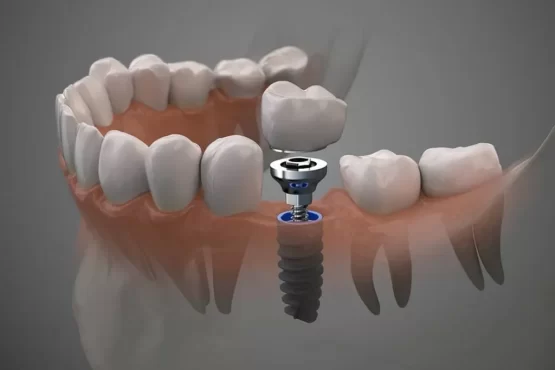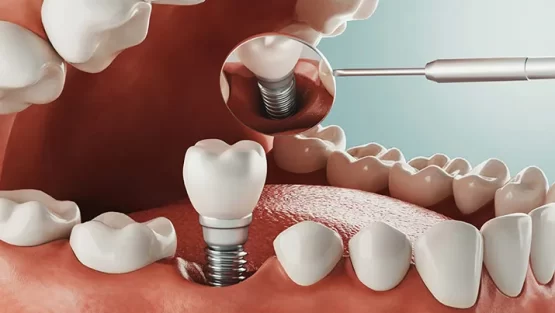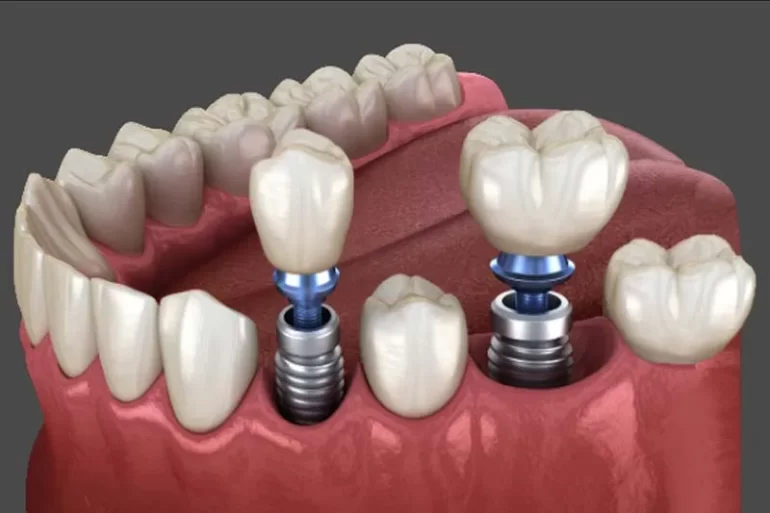In this article, we want to talk about dental implants from zero to one hundred dental implants, the best type of dental implants, the complications and care of dental implants, etc., so to get more information about dental implants, follow us to the end of the article from Mehr Shariati Dental Clinic .
The number of dental implant sessions
It may be different according to the specific circumstances of each person. This number usually depends on factors such as the number of teeth you need implants, the health status of your mouth and jaws, the type of implant used, and other relevant medical factors.
Dental implants are generally completed in two or more sessions. Sessions include initial evaluations, implant surgery, restorative procedures, and prosthetic installation. For more detailed information, it is better to consult your dentist to determine a plan for you.
Natural tooth implant
A natural tooth implant is a surgical procedure used to replace a missing or damaged natural tooth. This process is done by a dental implant, which is placed as an artificial column in the place of a natural tooth. A dental implant is usually made of titanium and can be used to connect an artificial tooth or a dental bridge to it.
This process requires a number of sessions and may include steps such as initial evaluations, implant surgery, recovery time, prosthetic fitting, and post-operative care. It is recommended to perform this process by a skilled and expert dentist in order to obtain a better result and have fewer complications.
Dental implant procedures
It generally includes steps that cover it from zero to percent
- Initial evaluation: At this stage, your dentist will perform a complete evaluation of the condition of your teeth, jaws, surrounding tissues, and general health. This step is done in order to diagnose the need for an implant, check the implant site and plan accordingly.
- Implant surgery: In this step, the dental implant is placed in the treated area as an artificial column. This surgery is performed by a dentist using materials made of titanium.
- Recovery time: After implant surgery, it takes time to heal and firmly connect the implant to the bone (osmosis process). This process is known as orthopedic implant or healing time and usually takes up to several months.
- Prosthesis installation: After the implant is healed, the artificial tooth prosthesis or dental ladder is installed on the implant. This prosthesis is designed in the shape, size and color of your natural teeth to look natural.
- Post-operative care: After the prosthesis is installed, your dentist may recommend post-operative care. These cares include food restrictions, oral hygiene and other points related to implant and prosthesis maintenance.

Durability of dental implants
It can be affected by various factors and depends on the care, health of the jaw and teeth, the type of implant used and other factors. If the dental implant is implanted correctly and the necessary care is taken after the operation, it is possible to last for a long time and even for a lifetime.
Which types of implants are long-lasting?
Typically, titanium implants used to replace natural teeth are usually long-lasting and fuse with the jawbone over time. But to maintain the long-term durability of the implant, regular care of the teeth and prostheses is required.
To increase the longevity of dental implants and dentures
- Compliance with oral hygiene: regular oral care, use of toothbrush and floss, use of mouthwash and regular cleaning with the dentist.
- Visit the dentist: Schedule regular appointments with your dentist and follow his or her recommendations regarding care and dental visit schedules.
- Avoiding harmful habits: Avoiding habits such as arching or grinding your teeth, which can damage the implant and prosthesis.
- Communicate Concerns: If you have any concerns or problems with your implants, let your dentist know right away.
Avoiding severe damage to the teeth and regular use of dental care can improve the durability of the dental implant and increase the duration of its use.
Care after dental implant
It is very important to ensure the successful operation and longevity of the implant. Some of the care after implant placement are:
- Use of medicines: The dentist may prescribe you anti-inflammatory, pain-relieving and antibiotic medicines. Use these drugs carefully and according to the dentist’s prescription.
- Oral care: Carefully follow the dentist’s instructions on oral care after the operation. Include thorough brushing and flossing, and use mouthwash.
- Food restrictions: In the early days after implant placement, you can use soft and cool food. Consuming semi-liquid foods and cool juices can be helpful.
- Avoiding harmful habits: Avoiding habits such as arching, gnawing on the mouth, or picking on hard objects so as not to damage the implant and prosthesis.
- Inform your dentist immediately if you have any discomfort, pain, or unusual symptoms after the procedure.
- Visiting the dentist: It is very important to visit the dentist regularly for checks and necessary adjustments for the prostheses and to ensure the health of their function.
Your dentist is the best guide for care after implant placement. Carefully follow his instructions and recommendations to benefit from the success of the operation and the longevity of the implant.

Complications of dental implants
Most of the dental implant clients face without any operational complications or major problems after the dental implant operation. However, some common complications and problems may still occur in the stages after the dental implant operation, which can be mentioned as follows:
- Pain and swelling: There may be pain and swelling at the implant site and the surrounding area in the early days after the operation, which can be reduced to some extent by taking prescription drugs.
- Infection: There is a possibility of infection at the implant site, which is usually treated with prescribed antibiotics.
- Sensitive gums: In some cases, the gums around the implant may be sensitive, which can be reduced with proper oral care.
- Incomplete tracking: In some cases, incomplete tracking may occur, requiring realignment of the implant and prosthesis.
- Imbalance of the jaw: If the material of the prosthesis is incorrect or its settings are inappropriate, it may cause the imbalance of the jaws.
Conclusion
- Complications and problems are reduced by choosing a skilled and experienced dentist in performing dental implants.
- Adherence to post-operative care and regular visits to the dentist can help maintain the health and durability of implants and prostheses. You should inform your dentist immediately if you have any concerns or problems after the procedure.
- It is recommended to consult with your dentist to determine a suitable plan for implanting your teeth and follow the tips related to the implant steps carefully.

